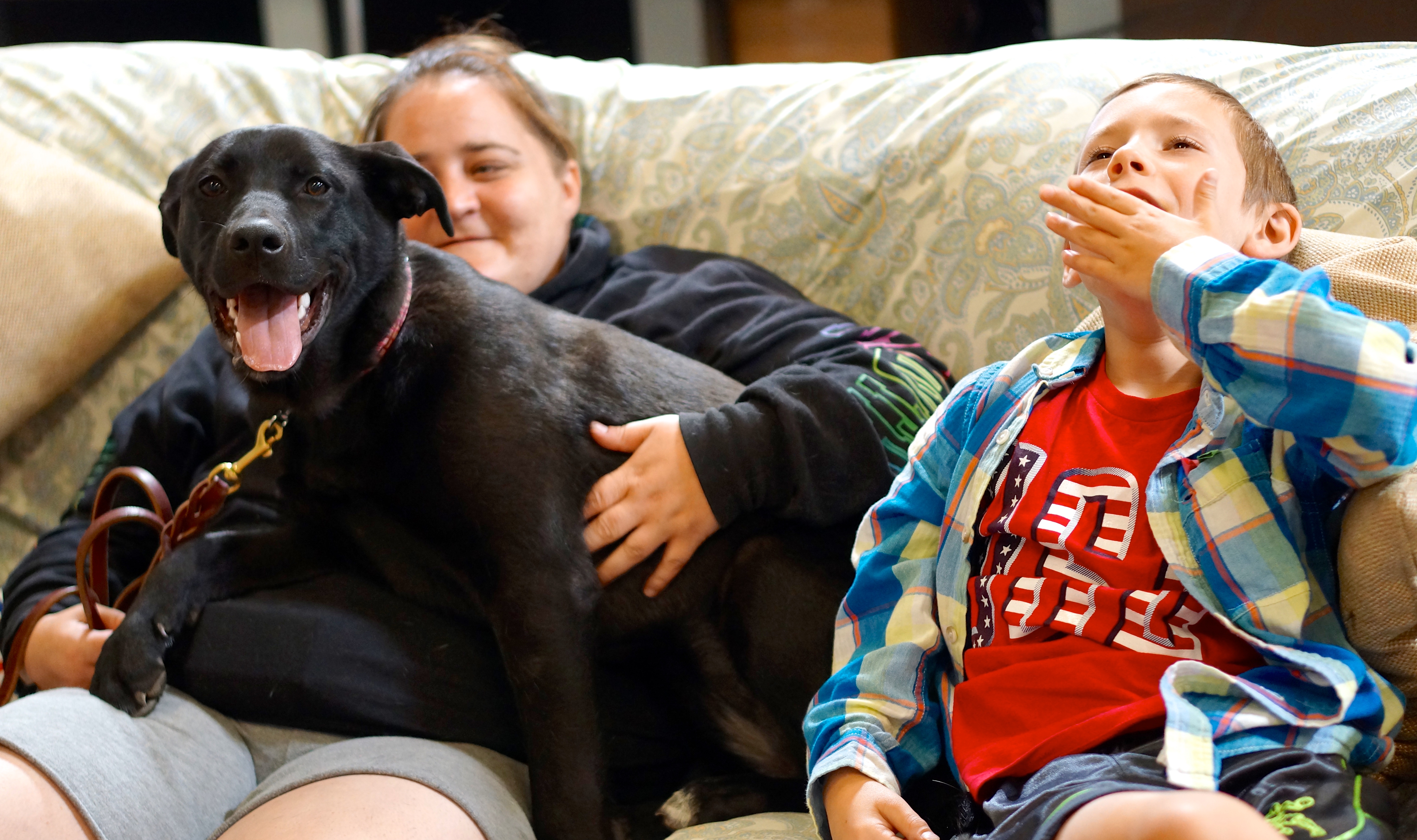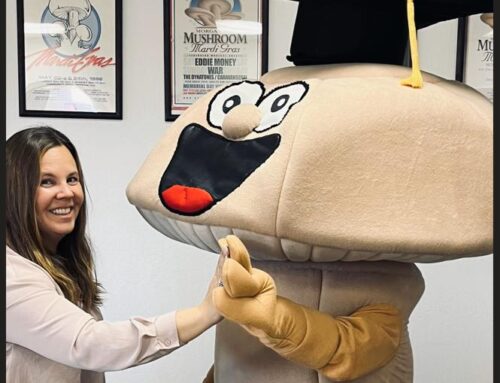Published in the February 27 – March 12, 2019 issue of Morgan Hill Life

Connor Quinn

Female Veteran Ashley, left, with her son and her service dog April that she got from Operation Freedom Paws.
Photo courtesy Connor Quinn
The hardest thing I’ve ever done is transition out of the military. Nine years of service in the Army as a medic with two tours to Afghanistan, and, without hesitation, coming home was the most difficult.
In Sebastian Junger’s book titled “Tribe,” he writes about the phenomenon of soldiers bonding and why they miss it so much when it’s over. In his book he discusses how the myth of the werewolf might have come about because in more primitive times the ultimate penalty for a human would have been to be cast out from society, forcing the individual to become more and more feral, thus a monster in the eyes of civilized people from whom they were cast from.
Looking back on my own transition I wonder if it’s not something similar. It’s been a little more than four years since I left and looking back I know I owe my life to the friends and family who refused to give up on me, and the unconditional love of an Irish Terrier pup named Lola.

Photo courtesy Connor Quinn
Veteran Ed with dog Panther.
Thinking along the lines of having a “tribe” to belong to, in the wolf or dog kingdom it would be a pack. It’s rather amazing the bond that we as humans can form with animals. History shows this, as dogs and humans have been hunting together since before the written word and have even joined on the battlefield. For those who have connected with an animal, you have this being that is a part of you no matter what.
Speaking for myself, after several tours my trust in humanity wasn’t at its peak, so having something to connect to might have been my saving grace during my darkest hours. It’s that connection that more than likely led me to find a job as a kennel technician at Operation Freedom Paws based out of San Martin. Not only are they based out of my home town, they also are performing a service very near and dear to my heart — training service dogs for veterans.

OFP dogs help military veterans transition into civilian life.
OFP was started by Mary Cortani who, after receiving a distressing call from a veteran about the difficulties in finding a service dog, realized she was in a unique position to help. Mary has a lifelong devotion to animals, even serving in the military during the Vietnam era as a canine trainer. After that phone call, she decided to start a nonprofit to help veterans and individuals with disabilities restore their freedom by providing a service dog on condition they complete a 48-week training program. Other than time, there are no costs to those who are accepted into the program.
I have had few interactions with Mary, as she carries the persona of someone way above my pay grade. But I can say this — she carries herself with a drive that demands the best out of herself for those she has taken charge of. In my experience in the military, there are few leaders who seem to carry this weight. I often see her walking one of the future service dogs or huddled over her phone sending an email or text to ensure the job is getting done and getting done right. Other times I see her conducting classes, surrounded by clients matched with their service dogs, reminding me of my times getting pep talks from my brigade colonel. In her, I recognize those traits in leadership that people looking for a cause are drawn to.
In the little time I have spent working at OFP I’ve noticed some remarkable changes. Not so much with the clients, as I do not interact with them much, but with the dogs. In the few months I’ve worked helping condition the dogs with taking verbal commands and by giving them play time, I’ve seen how they respond to becoming part of a pack, a tribe. In one case I saw how a set of shepherd/collie puppies abandoned in a field have changed.
From being distant at first then, when given the chance and opportunity, becoming some of the most loving and attentive creatures I’ve ever come across. The more significant observation I’ve seen however, is with the service dogs we board when their match must leave town and are unable to take their dog with them. Maybe I’m projecting, but with them I’ve seen the same depression and loss that I felt when I left the military. The dogs go through their own depression, not eating, not wanting to play, and unable to be comforted by people that have known them since they were pups. I cannot help but relate, as I’m sure many service members can, that transitioning from the military and having that higher purpose, to not having purpose is an emotional blow that reflects in the statistic of 22 veterans a day committing suicide. Luckily, the dogs do not have the same vices to turn to as we humans do.
Today, with the social media frenzy comes the need to connect with something tangible and it seems to be more essential than ever before. Here I see more than one life being saved, I see two. I see the creation of a new tribe and new pack to live for, not just for the humans that have been matched with a service dog but, for the dog themselves. The saying “blood is thicker than water” at one point meant that the bloodshed in battle is thicker than the water of the womb. To me that translates as those bonds formed in struggle are bonds that are not easily severed.
Forty-eight weeks to complete a program is no small feat. During that time there is plenty of struggle for the client and dog to bond over. So, while the human and dog form a pack, those in the program are forming a new tribe on which they can learn with and trust with their struggles. While those in this program might have felt like outcasts from society like the proverbial werewolf, together with their new pack and new tribe they are finding the freedom to live their lives to the fullest.
Learn more at www.operationfreedompaws.org.







